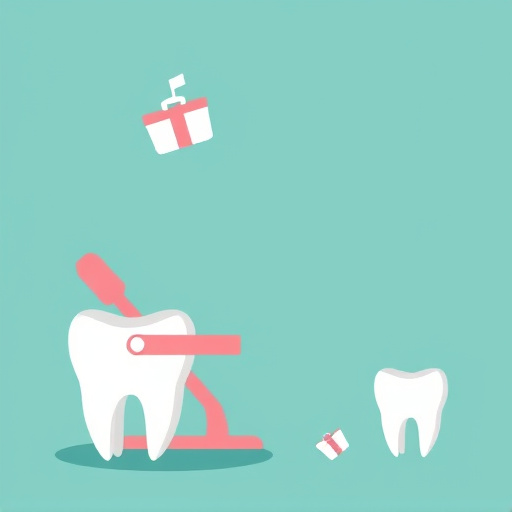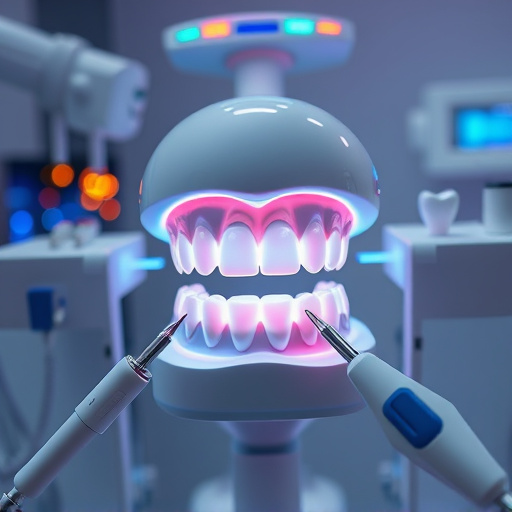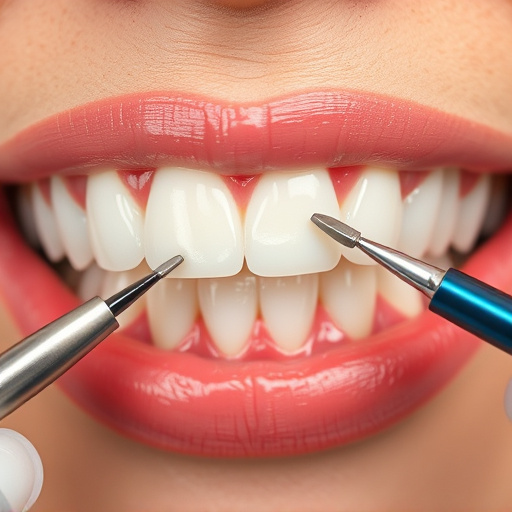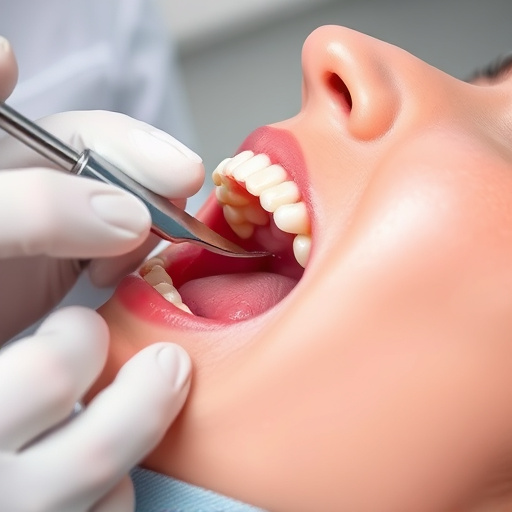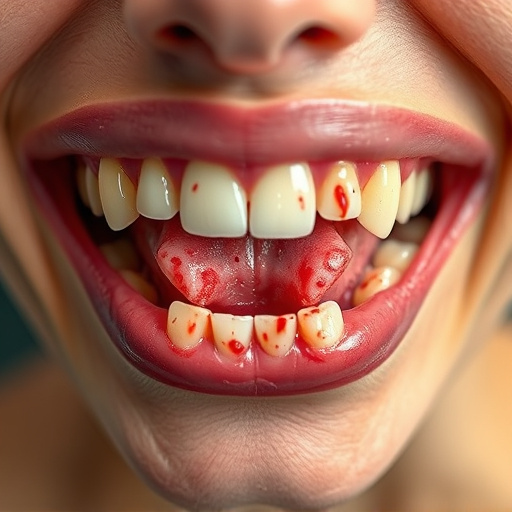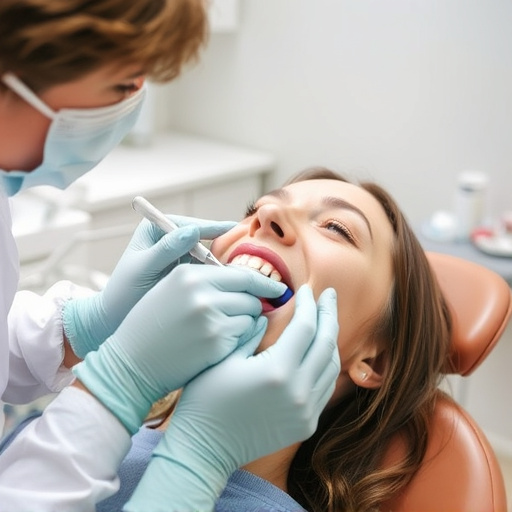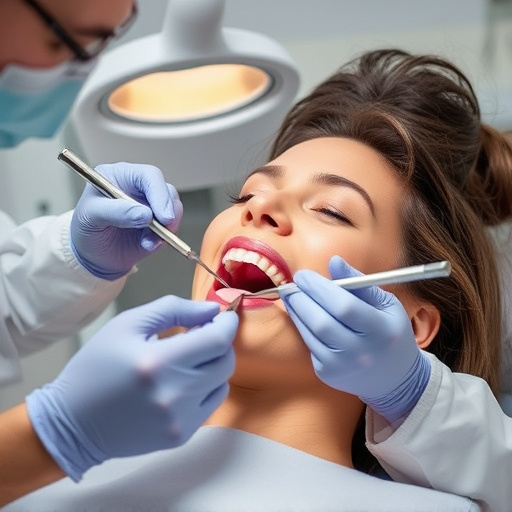After radiation therapy, dry mouth (xerostomia) is a common side effect due to damaged salivary glands. It can cause discomfort, dental issues, and difficulty swallowing. Effective dry mouth solutions involve personalized approaches combining lifestyle adjustments, dental interventions, and emergency care when needed. Regular family dentistry visits are crucial for managing symptoms, preventing oral health problems, and providing essential dry mouth solutions.
After radiation therapy, many patients experience chronic dry mouth—a condition that requires tailored management. This comprehensive guide delves into the understanding and treatment of post-radiation dry mouth, exploring common causes and risk factors. We present effective dry mouth solutions and management strategies, emphasizing the importance of early intervention and personalized care. Discover practical tips to alleviate symptoms and improve quality of life, focusing on evidence-based dry mouth solutions for optimal recovery.
- Understanding Dry Mouth After Radiation Therapy
- Common Causes and Risk Factors
- Effective Dry Mouth Solutions and Management Strategies
Understanding Dry Mouth After Radiation Therapy
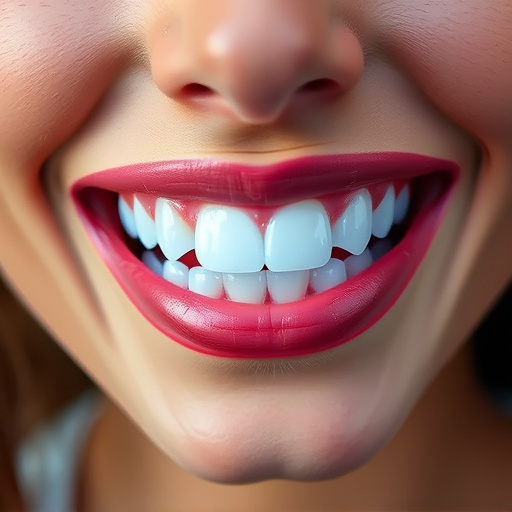
After radiation therapy, many patients experience dry mouth, a common side effect that can significantly impact daily life. This condition arises due to the damage inflicted on the salivary glands during treatment, leading to reduced saliva production. Dry mouth isn’t just an annoyance; it can cause discomfort, increased susceptibility to dental issues, and even difficulty swallowing. Understanding this side effect is the first step towards finding effective dry mouth solutions.
Recognizing that each patient’s experience is unique, healthcare professionals often recommend a multifaceted approach to managing dry mouth. This may include simple lifestyle adjustments like staying hydrated, avoiding stimulants, and modifying dietary habits. Additionally, dental bonding or dental implants could be considered for those at high risk of tooth decay or gum disease, which are common complications of dry mouth. In cases where the condition persists or worsens, emergency dental care services can provide prompt relief and guidance.
Common Causes and Risk Factors
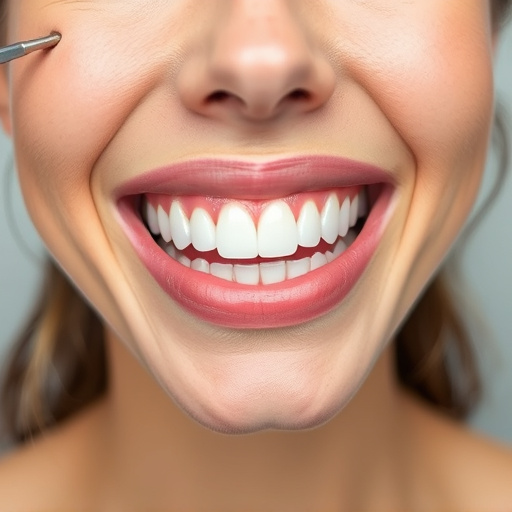
Dry mouth, or xerostomia, is a common side effect experienced by many individuals undergoing radiation therapy for cancer treatment. This condition occurs when the salivary glands are affected by the radiation, leading to reduced saliva production. Saliva plays a vital role in maintaining oral health and moisture, so its depletion can result in various discomforts and potential complications.
Several factors contribute to the development of dry mouth, including age, medical history, and certain medications. Elderly individuals are more prone to xerostomia due to age-related changes in saliva production. Additionally, those with a history of autoimmune disorders or previous radiation treatments in the head and neck area are at higher risk. Some common prescription drugs, such as antihistamines, decongestants, and blood pressure medications, can also cause dry mouth as a side effect. It’s essential for patients undergoing radiation therapy to be aware of these risk factors and to promptly seek emergency dental care if severe symptoms arise. Regular visits to the family dentistry practitioner can help manage dry mouth, provide relief, and prevent further oral health issues.
Effective Dry Mouth Solutions and Management Strategies
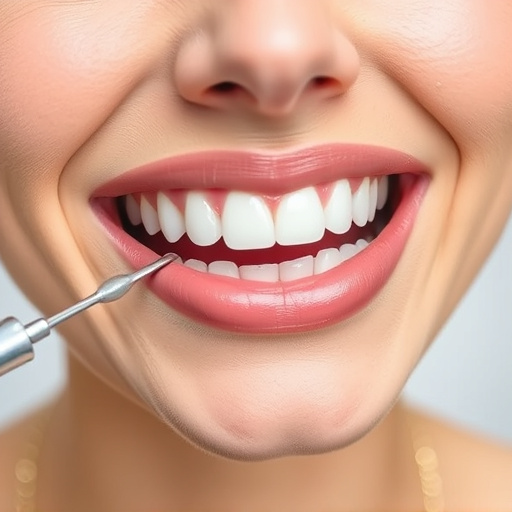
Dry mouth solutions are essential for patients undergoing radiation therapy, as the treatment can significantly impact saliva production, leading to a range of discomforts. Effective dry mouth solutions include artificial saliva substitutes that provide much-needed moisture to alleviate symptoms like dryness and irritation. These substances mimic natural saliva, helping to maintain oral health and reduce the risk of dental decay and gum disease.
Additionally, management strategies such as regular teeth cleaning using soft-bristled toothbrushes and fluoridated toothpastes, along with the use of clear aligners for those who require orthodontic treatment, can further combat dry mouth complications. Restorative dentistry procedures, including filling and crown replacements, are also beneficial in addressing oral issues that may arise due to reduced saliva flow. These comprehensive approaches ensure patients receive holistic care tailored to their unique needs during and after radiation therapy.
Dry mouth after radiation therapy can significantly impact an individual’s quality of life. Understanding the condition, its causes, and available management strategies is crucial. Effective dry mouth solutions include staying hydrated, using saliva substitutes, and adopting lifestyle changes like avoiding drying agents and maintaining good oral hygiene. Promptly addressing these symptoms can alleviate discomfort and enhance post-therapy recovery, ensuring patients receive comprehensive care tailored to their needs.





